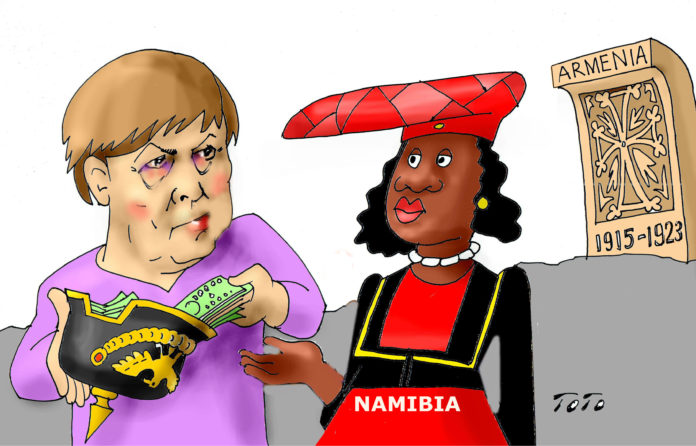By Edmond Y. Azadian
Armenia and Namibia are worlds apart; the first one is in the Caucasus and the latter in Southwestern Africa. Relations or the relevance of one to the other is scarce in their histories, except for the fact that Namibia turns out to be the favorite destination of Armenia’s second president, Robert Kocharian, for safari and lion hunting. It is also rumored that he has investments in Namibian diamond mines.
The other connection is evident through Germany, a former colonial power whose leaders’ hands are soaked in the blood of both Armenians and Namibians.
Last year, when the German Parliament passed the resolution recognizing the Armenian Genocide, there was also a moment of honesty in the bill to recognize German culpability in the execution of the Armenian Genocide.
German history begins and ends in genocides: the Herero extermination, the Armenian Genocide and the Jewish Holocaust.
In 1884 the German government under Otto Von Bismarck proclaimed a protectorate over southwest Africa. Germany as a colonial power carved out German South-West Africa, which eventually became the independent country of Namibia.










